Duane Dean Behavioral Health Center
Provides outpatient substance abuse treatment, mental health services and community resources. Accepts Medicaid, Medicare, state-financed health insurance, self-pay, and private health insurance options. Some programs are offered at no cost.
Non-profit
Kankakee & Iroquois Counties
English and Spanish
Duane Dean Behavioral Health Center
Eddy F. Borrayo, President / CEO
Raul Tinoco, Communications Director
Email
Ruben D. Feliciano, MUPP Chief Strategy Officer
Victor Nevarez, CADC, QHEIC Clinical Director
Email
Laura Mancilla, Program Manager
Email
RFS Welcoming Center
The Livingroom Program
Services
Criminal Justice Program
DDBHC operates a criminal justice program for adults 18 years and older who have been mandated by the courts to undergo toxicology testing, assessments and treatment when necessary. Also, DDBHC staff work with persons recently released from jail or prison who were incarcerated because of a substance abuse issue. Access to treatment can greatly improve the chances for a successful integration back into society for many ex-offenders. Treatment has been proven cost-effective and can help end the vicious cycle of drug abuse and criminal recidivism.
Extended Care
Duane Dean Behavioral Health provides extended care services to clients from 3 months to 1 year or more depending on the need. Extended care includes attendance in one support group per week and individual counseling as-needed. Clients also are expected to attend Alcoholics Anonymous/Narcotics Anonymous groups on a regular basis or alternative self-help structures such as Women in Recovery groups or at alternative institutions such as the church for a long-range support structure.
Living Room Program
The Livingroom is a community respite program that offers an alternative to Emergency Departments (ED) for people experiencing an emotional crisis. It aims to provide a comfortable and safe, non-clinical space to adults, 18 years old and over, that are experiencing a mental health crisis. The space offers common areas where Guests can socialize with others, as well as private space where Guests can spend time by themselves or working with the team. Participants are referred to as Guests to reinforce the non-clinical aspect of the model. Hours for the Living Room are established based on local community needs; we work with Fire and Police Departments, as well as hospitals and crisis centers to identify hours when the need for mental health services is higher. The program is free of cost to Guests, and there is no need to have a mental health diagnosis to use the facility. The Living Room is staffed by peers (Recovery Support Specialists RSS) to help lessen the stigma. The RSS are individuals that have a mental illness or another co-occurring disorder but have achieved a level of recovery that allows them to be of assistance to others. Using their own experiences, the RSS will assist Guests in de-escalating the presenting crisis, establish short-term goals that respond to their specific situation and that are achievable; educate Guests on coping skills, and develop wellness plans to include other resources that may be available in the community at large.
Availability
Monday
10:00 AM - 06:00 PM
Tuesday
10:00 AM - 06:00 PM
Wednesday
10:00 AM - 06:00 PM
Thursday
10:00 AM - 06:00 PM
Friday
10:00 AM - 06:00 PM
Medicated-Assisted Treatment (MAT)
Medicated-Assisted Treatment (MAT) is the use of FDA- approved medications, in combination with counseling and behavioral therapies, to provide a whole-patient approach to the treatment of substance use disorders. MAT programs provide a safe and controlled level of medication to overcome the use of an abused opioid. And research has shown that when provided at the proper dose, medications used in MAT have no adverse effects on a persons intelligence, mental capability, physical functioning, or employability.
Opiate Maintenance Therapy
DDBHC's OMT program is directed at reducing and eliminating the use of illicit drugs, criminal activity and the spread of infectious disease while improving the quality of life and functioning of the client through the administration of methadone maintenance therapy. The use of methadone to treat opiate addiction is a time-tested therapy and, when combined with counseling, is an effective treatment with a high success rate. The agency adheres to all state and federal regulations relative to the implementation of its OMT program and all persons must be medically approved before being admitted. Clients receive a complete physical, blood work-up and other medical tests prior to starting therapy. DDBHC is the only facility in Kankakee County and adjoining Iroquois County to the south that provides OMT as an outpatient service for those suffering from an addiction to opiates. Duration of treatment is based on individual need.
RFS Welcoming Center
The RFS Illinois Welcoming Center is a comprehensive service center for the integration of immigrants and refugees in Illinois. The RFS Illinois Welcoming Center's innovative model eliminates systemic barriers that immigrants may have in approaching state services. The Welcoming Centers serve as one-stop human service centers that provide comprehensive and holistic case management and service coordination to immigrants and refugees in a linguistically, culturally sensitive manner. Legal assistance and immigration services are provided, along with referrals to helpful resources in Kankakee County.
Availability
Monday
08:00 AM - 04:00 PM
Tuesday
08:00 AM - 04:00 PM
Wednesday
08:00 AM - 04:00 PM
Thursday
08:00 AM - 04:00 PM
Friday
08:00 AM - 04:00 PM
Last Updated: 12/20/2023 at 10:19 AM
Upcoming Events
0–0 of 0


